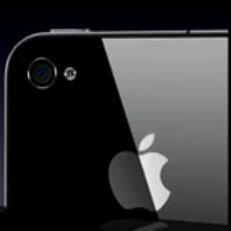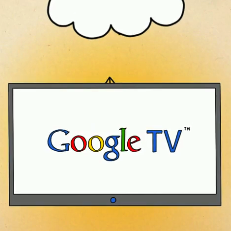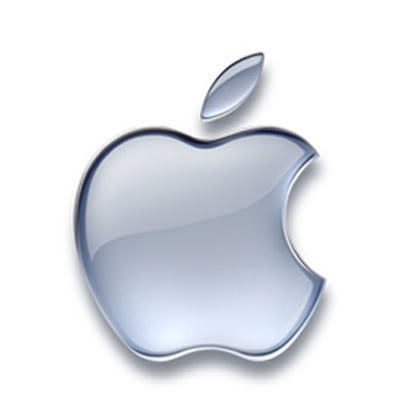
Apple releases iOS 4.1 for iPhones, iPod Touches
As promised at last week's event, Apple on Wednesday released iOS 4.1, its first significant update to the iOS platform that was introduced with the iPhone 4 earlier this summer. The update includes several new features including HDR photos, HD video upload, and a working Game Center.
Several bugs were also fixed in this latest update, including the highly-publicized proximity sensor issue and security issues involving FaceTime, GIFs and TIFFs, and at least 20 bugs in the WebKit framework of the Mobile Safari browser. The fourth generation iPod touch runs iOS 4.1 natively, thus upgrading the device is unnecessary.

$400 Xbox Kinect bundle due November 4 in US
Microsoft has fired the first salvo in a battle for motion-sensing superiority that is sure to last through the holiday season. The Redmond company said Wednesday that it would introduce a Xbox 360 bundle that would include Kinect for $399.99 beginning November 4.
The console is Microsoft's redesigned 250GB Xbox 360 which retails on its own for $299.99. The company had announced in July that the Kinect system would be a $149.99 add-on, so buyers would save $50 on the bundle. Like the standalone Kinect offering, the game Kinect Adventures, would be included.

Google Instant provides search results as you type
Google Wednesday launched a new search feature called Google Instant, which offers search results as you are typing your query terms.
Around this time two years ago, Google unveiled Suggest, a feature which predicted what searchers were looking for as it was being typed in the Google search field. Instant takes this a step further and provides the actual results so the user doesn't have to even click "search" or hit enter.

Google logo clickthrough causes sales windfall for toy maker
A lot of attention is being paid to Google Doodle logos with the company's impending press conference today, and the public's curiosity about the search engine's animated logos really paid off for one toy maker.
On September fourth, Google's Doodle logo was a celebration of the 25th anniversary of the Buckminsterfullerene molecule, a spherical allotrope made up of 60 carbon atoms which closely resembles the geodesic domes made famous by American Engineer Buckminster Fuller.

Symantec releases Norton Internet Security 2011 and Norton Antivirus 2011
Symantec Wednesday launched the latest versions of its flagship security products: Norton Antivirus 2011 and Norton Internet Security 2011. As it has been for the last two years, Symantec's focus remains on keeping the Norton software quick and lightweight, while harnessing the power of the crowd and the cloud.
For this version of the Norton software, Symantec has added 100 new content updates, which includes new versions of both the software's behavioral engine, and the file-based heuristic engine. The cumulative effect of the improvements were recently shown off by software benchmarking company Passmark; which ranked a beta version of Norton Internet Security 2011 the best performing security software package for Windows 7 Ultimate (64 bit.) The company timed booting, scanning, browsing, IE launching, and installation, measured memory usage at idle, footprint, registry keys added, and network throughput in a total of 30 different tests.

Firefox 4 beta 5 beefs up video, audio, security features
Tuesday evening, Mozilla pushed out the fifth beta of its Firefox 4 Web browser. With this update, improvements to the browser's audio, video, and security have been added.
Two weeks ago, the Beta 4 release of Firefox 4 included new features to help users get organized, Firefox Sync and Panorama. This release focuses less on giving users new features, and more on providing the tools for a better experience down the road.

To protect trade secrets, HP sues former CEO Hurd after joining Oracle
HP filed a civil lawsuit against its former CEO Mark Hurd on Tuesday after the executive was hired by IT giant Oracle.
"Mark Hurd agreed to and signed agreements designed to protect HP's trade secrets and confidential information. HP intends to enforce those agreements," HP's statement to the media said.

Google aims for Apple with 'Web TV', launching worldwide by 2011
Apple may have the head start on its competitors when it comes to streaming content, but Google is not going to let it get too far ahead. CEO Eric Schmidt said in a keynote at the IFA conference in Berlin this week that it plans to offer its "Google TV" service worldwide by next year.
Sony will be the first manufacturer to incorporate Google's technologies into
television sets sold within the US this fall. From there, the service will be expanded worldwide in 2011. Samsung is also considering building televisions based on Google's Android platform, but no final decision has been made.

Craigslist takes down adult services section, silent as to why
Craigslist shut down its adult services section quietly late Friday, seemingly acquiescing to the demands of child welfare groups. Organizations such as The Rebecca Project had said that Craigslist's policy of allowing sex ads was assisting criminals in sex trafficking, and the site was making a hefty profit doing so.
For whatever reason, the site has decided to make it obvious that it was removing the link, placing the word "censored" in white letters with a black background in place of where the link used to be. Cragslist's decision to do so seems to suggest that it may have been pressured to make the change rather than doing it of its own volition.

IDC: Apple iOS market share will decline 26 percent through 2014
Today, IDC raised its forecast for 2010 global smartphone shipments. Is it any wonder? "Hot" defines an exciting summer of new models, including iPhone 4 and scads of big-screen Android smartphones. Meanwhile, Nokia is ready to pop the N8 (It's almost Nokia World, folks!), and Microsoft has already started marketing Windows Phone 7 even before the first devices release.
The analyst firm published a forecast through 2014 that shows Apple's iOS losing market share and Microsoft's mobile OS gaining but not rising from fifth place. Android -- what in a statement Ramon Llamas, IDC senior research analyst, called a "wild card" -- is forecast to make the greatest gains.

Samsung completes the carrier quadruple-play with Fascinate on Verizon
Samsung's Gigaherz class, Android-powered Galaxy S line of smartphones will be available on all four major U.S. wireless carriers this week with the launch of the Fascinate on Verizon Wireless.
Verizon Wireless and Samsung today announced the Fascinate will be available tomorrow (September 8) online and the following day in stores for $199 after rebate and two-year service contract.

Personalized feed reader my6sense launches in beta on Android
Personalized feed reader my6sense has launched in beta today on Google's Android platform, and can be downloaded freely from the Android Market now.
My6sense made some ripples in the vast ocean of iOS apps when it launched last year; because it takes the simple concept of RSS and social feed reader and gives it some "digital intuition" so your feed is more relevant to your interests.

Oracle snatches up ousted HP CEO Hurd, makes him co-president
HP's ousted CEO Mark Hurd will be joining Oracle as a co-president and member of the board, statements from the company said Monday.
Last month, Hurd left his position as CEO of HP after a sexual harassment investigation uncovered several of his policy violations; including a clandestine personal relationship with an HP contractor, and falsification of expense reports.

90's game hero Duke Nukem returns after delay of more than a decade
Friday, 2K Games and Gearbox Software announced they will be releasing Duke Nukem Forever on Xbox 360, PlayStation 3, and Windows PC in 2011. The game was first announced in 1997 and has long been considered the most legendary case of "vaporware," that is, hardware or software that is announced but released either too late or not at all.
The story of Duke Nukem Forever is so legendary that its delay inspired its own parody game franchise. D3's Eat Lead: The Return of Matt Hazard was released in 2009, and featured a gun-slinging action game hero very similar to Nukem returning to video games after a six-year hiatus.

Ping off to a rocky start as spam, issues plague service
Apple's foray into social music is not going well as its Ping service is experiencing a multitude of problems, including comment spam, a lack of promised functionality, and generally inconsistent user experience.
Security researcher Chet Wisniewski at Sophos said Apple is not employing any type of spam or URL filtering, as comments such as those advertising "free iPhones" were already appearing some 24 hours after the site's launch. He also said that Apple has made it easy for those to abuse the service.